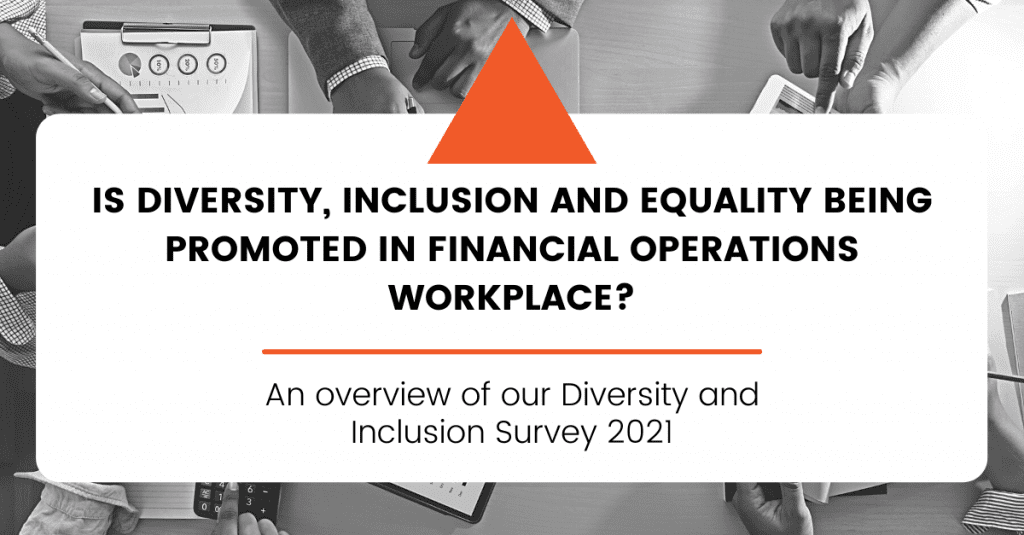In April 2021, the Institute of Financial Operations & Leadership focussed on exploring equality, diversity and inclusion in financial operations. To find out about our members’ experiences of diversity and inclusion – and what organisations do to support it – we conducted a survey on the attitudes towards and perceptions of diversity and inclusion in financial operations workplaces.
Defining our terminology
In our survey, the term diversity refers to any dimension which can be used to differentiate groups from one another. Diversity dimensions include but are not restricted to gender, religion, sexual orientation, race, ethnicity, class, education and disability.
Also, inclusion refers to the practice or policy of providing equal access to opportunities and resources for people who might otherwise be excluded or marginalised. Inclusion is putting the concept and practice of diversity into action by creating an environment of involvement, respect, and connection.

Diversity is essential
Almost all respondents of our survey reported that diversity and inclusion are important within financial operations. There are many benefits individuals experience as a result of working within diverse and inclusive organisations. Advantages that benefit not only employees but also the businesses they work within.
Survey participants highlighted the business case for implementing diversity and inclusion. All respondents reported that for financial operations workplaces to be successful, it is vital for employers to understand diverse backgrounds, cultures, and differences.
It is perhaps unsurprising then that 2% of respondents report feeling their organisation does not commit to diversity and inclusion.
Uncovering people’s experiences
It is clear respondents are working in organisations that promote diversity and inclusion. Employees and organisation are recognising the benefits that diversity and inclusion provide.
Surprisingly, therefore, one-third of respondent’s report feeling that their organisation does not provide an inclusive and supportive work environment. In our previous article, we explored the idea that diversity cannot succeed without inclusion. A diverse workforce will not be successful if individual team members do not value, respect and welcome each other to contribute to the organisations.
Unfortunately, it would seem workplaces are not managing inclusion as well as they should be. Yet, to successfully embed inclusion, diversity must be valued as both are interlinked.
So what needs to change?
Only two-thirds of respondents describe feeling strongly when it comes to talking comfortably about their background and cultural experiences with colleagues. It would therefore seem that there is a need for organisations to improve perceptions of the way diversity is valued in workplaces.
Concerningly, 10% of participants state they do not feel their workplace is somewhere they can be themselves without fear. Whilst diversity and equality initiatives ensure workforces are made up of balanced and varied teams, it is inclusion that ensures employees perceive organisations as safe places; workplaces that value their authentic self.
Whilst company-wide initiatives supporting diversity, equality and inclusion are important, the lived experiences of people working within these initiatives would seem to require some improvement.
Valuing diversity
Employees that feel respected at work are happier and more motivated. Workplaces that are known to value diversity attract a wide-ranging, loyal customer base. Organisations that succeed will attract and retain top talent.
Encouragingly, therefore, almost three-quarters of participants report that experiences in their current workplaces have helped them be more understanding of the differences between their colleagues, and the value this adds.
It seems clear there are some improvements workplaces need to make to improve attitudes and perceptions of diversity and inclusion.
Please join us in our webinar next week when we will discuss further findings from our survey outcomes. We share the key organisational initiatives our survey has uncovered that is missing, and provide strategies for improvement.

